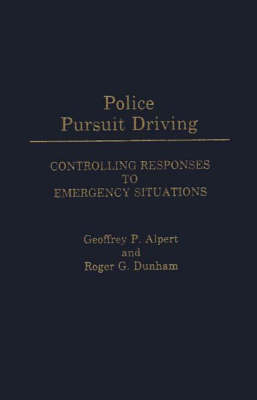SpringerBriefs in Criminology
1 total work
Police strategies often develop from custom and practice without guidance from empirical research. Police officers often make their decisions based upon information and tactics with which they are the most familiar and comfortable. Choosing between available strategies and other alternatives can be improved through research and evaluation. One area of policing in which this is especially true is pursuit driving, which may be the deadliest weapon in a police officer's arsenal.
Using the analogy between improper use of firearms and improper pursuit driving, Alpert and Dunham analyze the police car as a potentially dangerous weapon. The book is based upon information gathered over several years in Dade County (Miami), Florida. Included are the details of deaths, injuries, and property damage. Also reported are the arrests and apprehensions of felony suspects. The data are presented not to scare citizens, but to assist them, members of the law enforcement community, and politicians to understand more clearly the role of pursuit in policing and crime control. Pursuit needs to be discussed as a deterrent and crime-fighting strategy, and felony arrests resulting from successful pursuit must be included to compute a cost-benefit analysis. By offering a view of police pursuit that has been heretofore unavailable, the authors hope their empirical data will replace unsupported opinion and media sensationalism as information on which to create or modify pursuit policies and legal standards.
